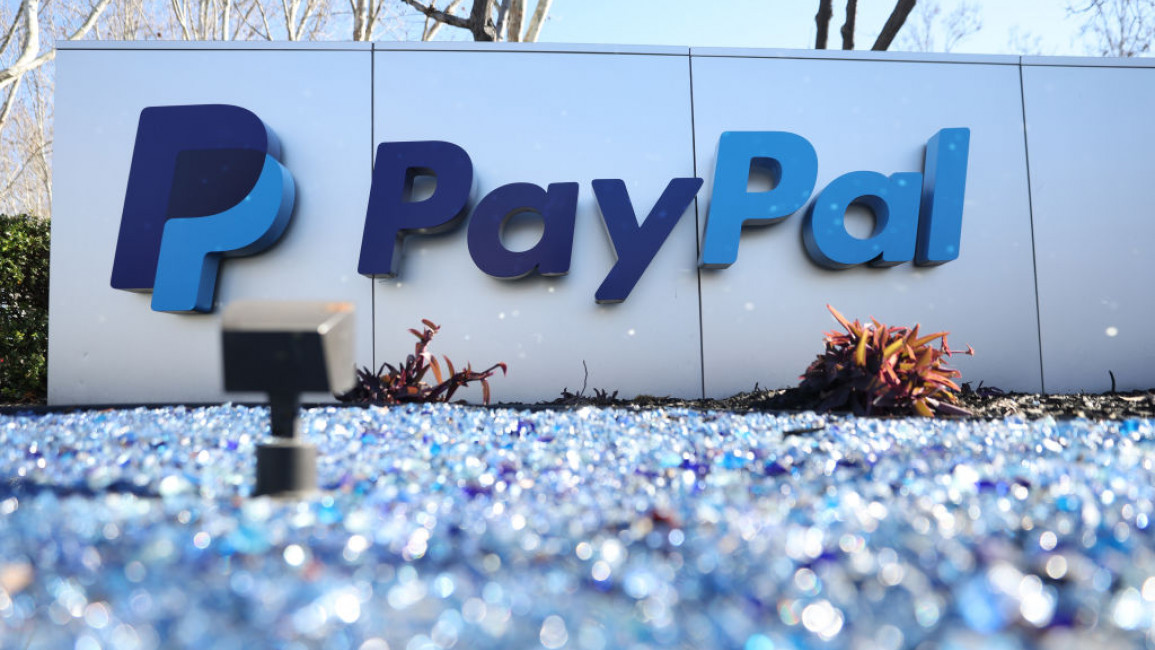Members of US Congress urge PayPal to lift ban on West Bank, Gaza
Eleven members of the US Congress have written to financial giant PayPal urging it to open its services to Palestinians living in the West Bank and besieged Gaza Strip.
The letter, which was authored by Mark Pocan, said that Paypal’s policy "may only exacerbate economic hardship, and therefore political instability, in the West Bank and Gaza" and urged the company to "ensure Palestinians have equal access to the digital economy".
The letter was sent to PayPal CEO Dan Schulman on 24 May ahead of the company’s annual shareholders’ meeting and had been signed by ten other members of Congress, including Ilhan Omar and Palestinian-American Rashida Tlaib - both of whom had repeatedly stood up for Palestinian rights.
US congress members urge PayPal to open services to Palestinians.
— Farah Fawaz | فرح فواز (@FarahFawaz90) May 25, 2023
While PayPal is available in 'illegal settlements', it is unavailable to Palestinians living in the occupied West Bank and Gaza.#palestine #فلسطين pic.twitter.com/pKShl0nNbG
"We have significant concerns that, because PayPal does provide services to Israeli citizens in illegal settlements across the West Bank, but does not provide services to Palestinians living in the West Bank and Gaza, PayPal’s current operating status may be infringing upon the rights of Palestinians," it read.
"As one of the world’s most recognized payment platforms, PayPal has a responsibility to ensure its services and operations are provided in a non-discriminatory manner and in accordance with the United Nations Guiding Principles on Business and Human Rights," the letter added.
The letter was sent in collaboration with 7amleh-The Arab Center for the Advancement of Social Media, a digital rights group as a part of its PayPal4Palestine Campaign which was launched in 2016.
PayPal has not explained why it does not offer its services in the Palestinian territories.
"As a Palestinian, I think that's based on a discriminatory policy," Mona Shtaya, Advocacy and Community manager at 7amleh told The New Arab.
"Because at the beginning, when our campaign started in 2016, they were claiming that our monetary system was not adapted to international standards," Shtaya said.
"But later on after a couple of years, the Palestinian Monetary Authority confirmed that they worked hard with the World Bank to make sure that our monetary system is aligned and adapted with international standards and based on that, we claim or argue that PayPal is discriminating deliberately against Palestinians."
Other financial companies, including Visa, Mastercard, Swift, and Apple Pay operate in the Palestinian Territories.
Shtaya was optimistic about the effect of the move on furthering their campaign and pointed towards the success of a previous petition that gained widespread support.
"I think it's going to be a good push for our campaign,” said Shtaya. "Previously we had launched a petition alongside our partners and our petition got over 275,000 signatures from people around the world. And one of those people was American actor Mark Ruffalo."
“So I think this should be a good step, a step forward to getting us closer to our goal, which is opening PayPal services for Palestinians,” she concluded.
Palestinians and rights groups have long called out PayPal for refusing to offer its servicing in Palestinian territories.
"With PayPal not operating in Palestine, it's like another checkpoint that's stopping us from moving," a Palestinian website designer was quoted by Reuters as saying in 2021, referring to notorious Israeli checkpoints in the occupied West Bank.
A recent survey by 7amleh concluded that around 80 percent of Palestinian households would use PayPal if it was available.


![President Pezeshkian has denounced Israel's attacks on Lebanon [Getty]](/sites/default/files/styles/image_684x385/public/2173482924.jpeg?h=a5f2f23a&itok=q3evVtko)



 Follow the Middle East's top stories in English at The New Arab on Google News
Follow the Middle East's top stories in English at The New Arab on Google News


